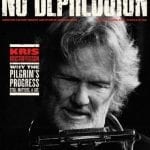Lou Rawls: 1935 to 2006
For some, Lou Rawls will forever be thought of as the singer most responsible for supper-clubbing soul music, as the definitive easy listening R&B man, as the voice of “When You Say Bud…”, as Barry White for people who find Barry White too visceral. But his swinging, optimistic baritone remains one of the signature sounds of American music. He died of cancer at age 72 on January 6.
Rawls was born and raised in “Bronzeville,” the south side of Chicago, and learned to sing in Baptist choirs, but was also drawn to jazz-crossing-over-to-R&B singers such as Joe Williams and Billy Eckstine, who over time revealed themselves as his biggest influence.
He first sang with his childhood friend Sam Cooke in the Teenage Kings Of Harmony and eventually joined the Pilgrim Travelers, one of the key gospel groups of the 1950s. He followed Cooke to Los Angeles, where he contributed fierce (and at the time uncredited) backing vocals to “Bring It On Home To Me”.
On his 1962 debut, he worked with the Les McCann Trio, putting some jazz distance between himself and soul, a way of finding his own voice and finessing market forces. His monologues, initially developed to hush noisy crowds, became personal cliches, but on songs such as “Dead End Street”, they built drama from a personal, almost testifying, connection to his audience.
His best R&B recordings include “Nobody But Me”, “Groovy People”, “Season Of The Witch”, “A Woman Who Is A Woman”, and “Love Is A Hurtin’ Thing”, but his greatest work remains his gospel recordings. His early work with the Pilgrim Travelers has been collected on Walking Rhythm (Specialty), but the sleeper reissue of last year, The Soul Stirring Gospel Sounds Of The Pilgrim Travelers (on Mighty Quinn), finds Rawls reunited with the gospel group that had disbanded three years earlier (in 1959), and singing all the wrinkles back into his tuxedo.
Recorded shortly after Stormy Monday in 1962, the sessions emphasized a lean combo – organ, piano and guitar – that was as close to country soul as Rawls ever ventured. Rawls is front and center, still caressing with jazz phrasings, but mostly letting loose on standards such as “Motherless Child” and “Sweet Chariot”, Cooke-penned numbers such as “That’s Heaven To Me”, and the memorable “Jesus Be A Fence Around Me” – which he sang, in devastating fashion, at the Rock and Roll Hall of Fame induction for Sam Cooke).
Rawls was an American original; when he sang to please just himself and his maker, he outstripped all the fame in the world.




